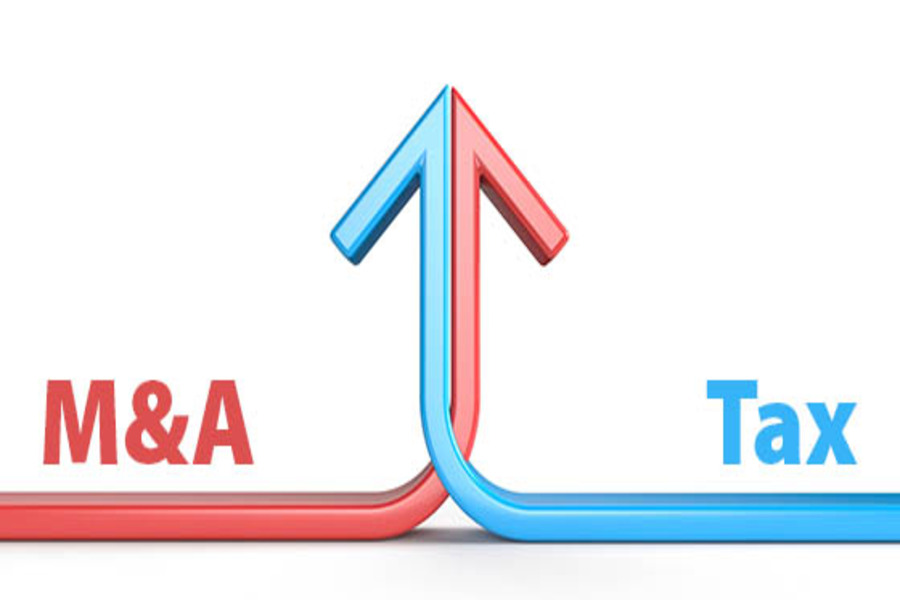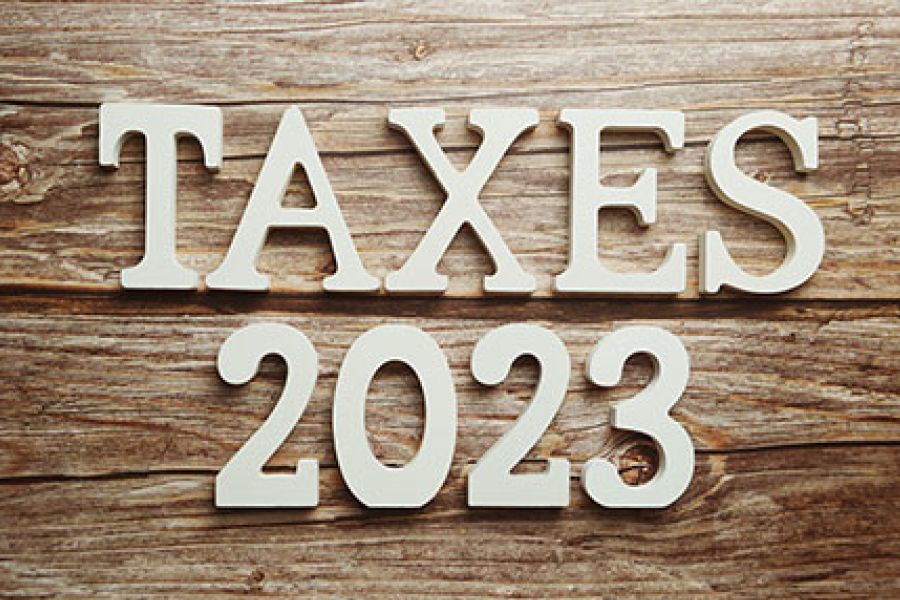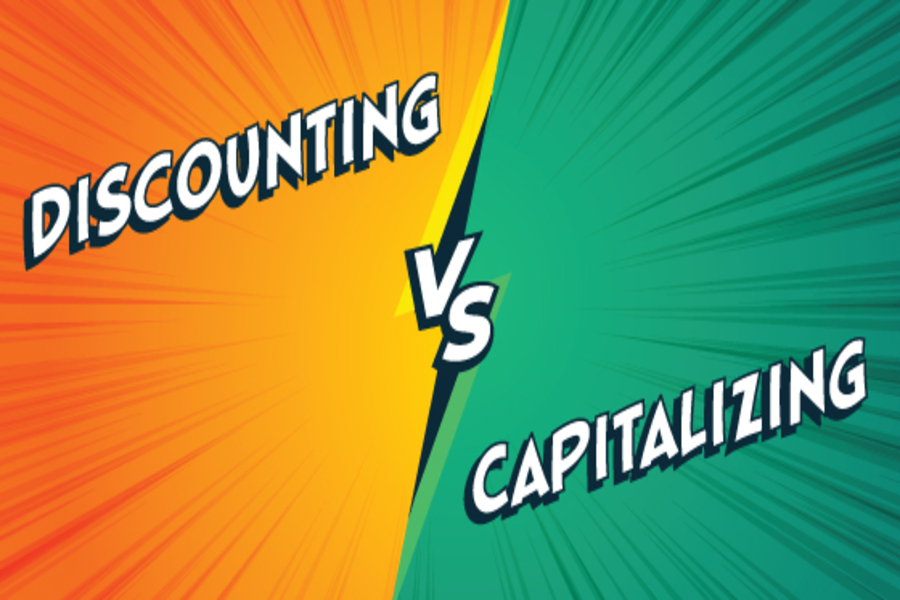Merger and acquisition activity dropped dramatically last year due to rising interest rates and a slowing economy. The total value of M&A transactions in North America in 2022 was down 41.4% from 2021, according to S&P Global Market Intelligence. But some analysts expect 2023 to see increased M&A activity in certain industries. If you’re considering buying or selling a business, it’s important to understand the tax implications. Two approaches Under current tax law, a transaction can basically be structured in two ways: 1. Stock (or ownership interest). A buyer can directly purchase a seller’s ownership interest if the target business is operated as a C or S corporation, a partnership, or a limited liability company (LLC) that’s treated as a partnership for tax purposes. The current 21% corporate federal income...

Ask any business owner whose company has been defrauded by an employee, and you’ll probably hear a common refrain: “I never would have suspected that person!” In many cases, spotting fraud perpetrators before they commit a crime is difficult, especially if you don’t work closely with them on a daily basis. But many fraudsters exhibit performance and interpersonal behaviors that can tip off owners, managers and HR professionals to more serious issues. Overt and subtle signs According to the 2022 Association of Certified Fraud Examiners’ (ACFE’s) occupational fraud study, A Report to the Nations, the vast majority of occupational fraud perpetrators have no previous criminal record. However, in 8% of cases, perpetrators have been terminated from a previous position and 9% have been disciplined by an employer. The ACFE...
Many people are more concerned about their 2022 tax bills right now than they are about their 2023 tax situations. That’s understandable because your 2022 individual tax return is due to be filed in 10 weeks (unless you file an extension). However, it’s a good time to familiarize yourself with tax amounts that may have changed for 2023. Due to inflation, many amounts have been raised more than in past years. Below are some Q&As about tax limits for this year. Note: Not all tax figures are adjusted annually for inflation and some amounts only change when new laws are enacted. I didn’t qualify to itemize deductions on my last tax return. Will I qualify for 2023? In 2017, a law was enacted that eliminated the tax benefit of...
Many businesses in certain industries employ individuals who receive tips as part of their compensation. These businesses include restaurants, hotels and salons. Tip definition Tips are optional payments that customers make to employees who perform services. They can be cash or non-cash. Cash tips include those received directly from customers, electronically paid tips distributed to employees by employers and tips received from other employees under tip-sharing arrangements. Generally, workers must report cash tips to their employers. Non-cash tips are items of value other than cash. They may include tickets, passes or other items that customers give employees. Workers don’t have to report non-cash tips to employers. For tax purposes, four factors determine whether a payment qualifies as a tip: The customer voluntarily makes the payment, The customer has...
Many startup ventures have never generated positive cash flow — or even revenue. How can a valuation analyst value a startup business when it has no track record? Without historical performance to rely on, valuators often turn to the entrepreneurs’ forecasts. However, no one can see into the future. So, prospective financial statements can be subjective and risky, especially in today’s volatile marketplace. Professional skepticism When evaluating prospective financials, valuators must exercise professional judgment and consider making adjustments where necessary. For example, whether or not an entrepreneur has put together formal financial projections can provide insight into the most important determinant of a startup company’s ability to succeed: management. Other important considerations include the startup’s competitive advantage, business type, market size, and potential growth opportunities. Lifecycle of a startup The...
Most retirement plan distributions are subject to income tax and may be subject to an additional penalty if you take an early withdrawal. What’s considered early? In general, it’s when participants take money out of a traditional IRA or other qualified retirement plan before age 59½. Such distributions are generally taxable and may be subject to a 10% penalty tax. Note: The additional penalty tax is 25% if you take a distribution from a SIMPLE IRA in the first two years you participate in the SIMPLE IRA plan. Fortunately, there are several ways that the penalty tax (but not the regular income tax) can be avoided. However, the rules are complex. As the taxpayer in one new court case found, if you don’t meet the requirements, you’ll...
An array of tax-related limits that affect businesses are indexed annually, and due to high inflation, many have increased more than usual for 2023. Here are some that may be important to you and your business. Social Security tax The amount of employees’ earnings that are subject to Social Security tax is capped for 2023 at $160,200 (up from $147,000 for 2022). Deductions Section 179 expensing: Limit: $1.16 million (up from $1.08 million) Phaseout: $2.89 million (up from $2.7 million) Income-based phase-out for certain limits on the Sec. 199A qualified business income deduction begins at: Married filing jointly: $364,200 (up from $340,100) Other filers: $182,100 (up from $170,050) Retirement plans Employee contributions to 401(k) plans: $22,500 (up from $20,500) Catch-up contributions to 401(k) plans: $7,500 (up from $6,500) Employee...
According to various sources, around 10% of all insurance claims involve fraud. Insurance companies generally pass along the cost of these fraud losses to policyholders in the form of higher premiums. Unfortunately, small businesses, which are generally less able to pay premium hikes, are particularly vulnerable to insurance fraud. To protect your company from losses and minimize the likelihood of increased premiums, learn how to identify insurance fraud. Areas of concern There are several forms of insurance fraud that could potentially affect your business: Workers’ compensation. In these schemes, an employee exaggerates or fabricates an injury or illness to receive workers’ compensation benefits. For example, a worker could mischaracterize an injury from a minor accident as serious or claim that an existing, non-work-related condition was the result of...
The IRS announced it opened the 2023 individual income tax return filing season on January 23. That’s when the agency began accepting and processing 2022 tax year returns. Even if you typically don’t file until much closer to the mid-April deadline (or you file for an extension), consider filing earlier this year. The reason is you can potentially protect yourself from tax identity theft. Here are some answers to questions taxpayers may have about filing. How can your tax identity be stolen? In a typical tax identity theft scam, a thief uses another individual’s personal information to file a fraudulent tax return early in the filing season and claim a bogus refund. The actual taxpayer discovers the fraud when he or she files a return and is told by...
Two techniques fall under the income approach umbrella when valuing a private business interest: the discounted cash flow (DCF) method and the capitalization of earnings method. How do these two commonly used methods compare — and which one is appropriate for a specific investment? Fundamentals of discounting The DCF method estimates the present value of future expected net cash flows using a discount rate. It entails these basic steps: Compute future cash flows. Potential investors are generally trying to determine what’s in it for them in terms of cash flow and an acceptable return on investment. Historical earnings are often the starting point for estimating expected cash flow over a discrete discounting period of, say, five or seven years. Then, the valuation expert calculates a terminal (or residual)...
- 1
- 2
- 3
- 4
- 5
- 6
- 7
- 8
- 9
- 10
- 11
- 12
- 13
- 14
- 15
- 16
- 17
- 18
- 19
- 20
- 21
- 22
- 23
- 24
- 25
- 26
- 27
- 28
- 29
- 30
- 31
- 32
- 33
- 34
- 35
- 36
- 37
- 38
- 39
- 40
- 41
- 42
- 43
- 44
- 45
- 46
- 47
- 48
- 49
- 50
- 51
- 52
- 53
- 54
- 55
- 56
- 57
- 58
- 59
- 60
- 61
- 62
- 63
- 64
- 65
- 66
- 67
- 68
- 69
- 70
- 71
- 72
- 73
- 74
- 75
- 76
- 77
- 78
- 79
- 80
- 81
- 82
- 83
- 84
- 85
- 86
- 87
- 88
- 89
- 90
- 91
- 92
- 93
- 94
- 95
- 96
- 97
- 98
- 99
- 100
- 101
- 102
- 103
- 104
- 105
- 106
- 107
- 108
- 109
- 110
- 111
- 112
- 113
- 114
- 115
- 116
- 117
- 118
- 119
- 120
- 121
- 122
- 123
- 124
- 125
- 126
- 127
- 128
- 129
- 130
- 131
- 132
- 133
- 134
- 135
- 136











